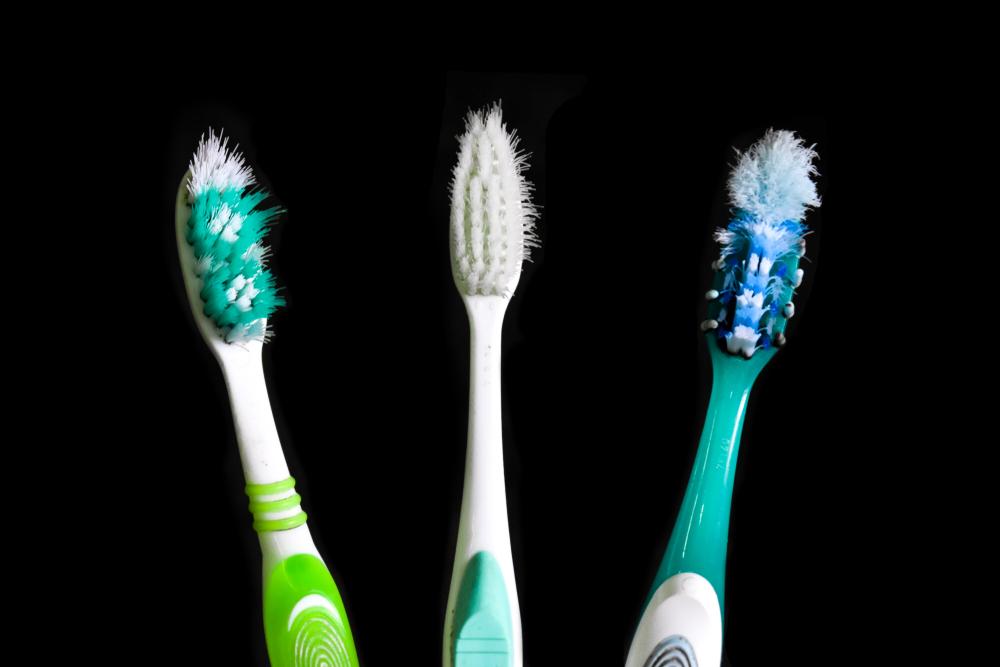10 Things You Do Wrong When You Brush Your Teeth
1. Brushing for too short of a time
You should brush your teeth twice a day for two minutes each time. That’s two minutes before bedtime and at least once more during the day. The Academy of General Dentistry says that the average individual brushes their teeth for 45 to 70 seconds per day. If they brush twice a day, that’s 23 to 35 seconds, which is less than half the time that is recommended. We looked at what happened when people brushed their teeth for the suggested two minutes vs. for much less time. You can see the results in our video.
2. Rinse your mouth with water after you brush
After cleaning your teeth, hygienists often say, “Spit, don’t rinse” (that includes rinsing with water as well as mouthwash). Rinsing removes toothpaste’s fluoride and enamel-protecting qualities. This is a difficult habit to form, but like any other, it gets easier with time.
3. Using the wrong toothpaste
Although there is no “best” toothpaste for everyone, be sure yours contains fluoride and has enough. Fluoride fights tooth decay. Again, if you choose a vegan toothpaste alternative, make sure it has fluoride.
4. Brushing at the wrong time
After being sick, you want to brush your teeth to remove the bad taste. Don’t! Illness and acidic foods remove the protective coating of saliva on your teeth, making brushing more abrasive. We recommended waiting 30 minutes to brush this layer.
5. Brushing too hard
Using the wrong technique and a heavy hand when you brush can wear down your teeth and cause your gums to pull away from your teeth. Your teeth won’t get cleaner if you brush harder. Many electric toothbrushes have a sensor that makes a light flash if you brush too hard.
You should brush at a slight angle instead of straight on, and you should focus on each tooth instead of scrubbing from side to side. One of our hygienists will show you how it’s done.
6. Using the wrong toothbrush
It’s difficult to clean wisdom teeth with a manual toothbrush, so many individuals skip the back of their mouth. An electric toothbrush can clean wisdom teeth better without having you to move your brush too much.
An electric toothbrush can also inform you when you’ve brushed your teeth long enough and if you’re applying too much pressure. Carefully select electric or manual bristles. You want to carefully clean your teeth without hurting your gums and teeth. A larger brush head isn’t necessary because you want to clean one tooth at a time, not all of them.
7. Using an old toothbrush or toothbrush head
If the brushes are worn, your toothbrush won’t work as well as it should. Replace your toothbrush or toothbrush head every three months. If you can’t remember when you started using it, assume of it as changing every time the seasons change. If you’ve been sick, you should also change your toothbrush. Bacteria grow on your toothbrush, and a new brush can keep you from getting sick again.
8. Only flossing your front teeth
Some people only floss the teeth they can reach rather than of all of them. When you floss, you get rid of more than just food between your teeth and gums. You also get rid of the fine plaque & biofilm that can cause cavities and gum disease.
9. Not using interdental brushes
When you can, you should also use an interdental brush in addition to floss. Even though floss can get between your gums if you use it right, you still require an interdental brush to clean the sides of your teeth, which your toothbrush and floss may not reach.
10. Replacing flossing with brushing or mouthwash
“Floss action” toothbrush heads don’t replace flossing. This toothbrush head doesn’t reach between teeth. Mouthwash won’t remove plaque; it’s like washing a car without cleaning it.
Although the above are basic “mistakes,” dental hygiene advice may vary from person to person due to specific considerations. See a dental hygienist regularly so they can show practises and make suggestions for your oral health at home. They can also care for your teeth and gums in a way you can’t.
For more information on general teeth care please contact Langley’s Dental Centre on 01344 842953.



